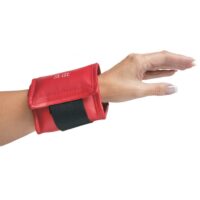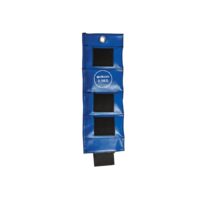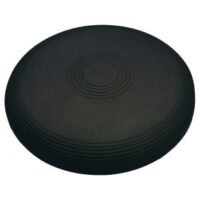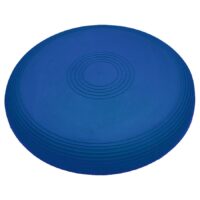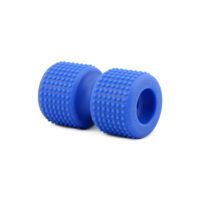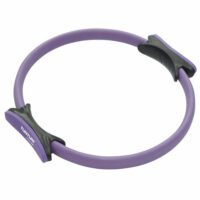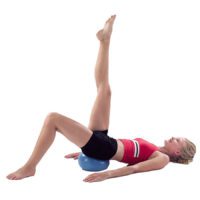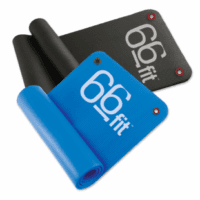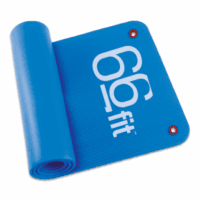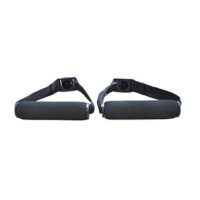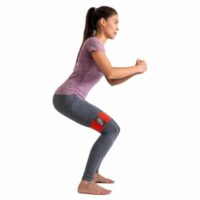Special Interest Physio

Special Interest Areas in Physiotherapy Rehabilitation: A Guide for Patients
Physiotherapy rehabilitation encompasses many specialised areas that cater to specific patient needs. While the primary goal of physiotherapy is to restore mobility and improve function, certain interest areas focus on addressing unique conditions, injuries, or populations. Understanding these particular interest areas can help patients seeking physiotherapy find practitioners with expertise in their specific needs. This article will explore some key special interest areas in physiotherapy rehabilitation and guide patients looking for specialised care.
Sports Rehabilitation
Sports rehabilitation physiotherapy specialises in treating athletes and individuals with sports-related injuries. Whether you’re an amateur athlete or a professional, seeking a physiotherapist with expertise in sports rehabilitation can significantly enhance your recovery process. These specialists deeply understand sports-specific movement patterns, biomechanics, and training techniques, allowing them to design tailored rehabilitation programs to help athletes return to their optimal performance level.
Neurological Rehabilitation
Neurological physiotherapy rehabilitates individuals with neurological conditions such as stroke, spinal cord injuries, multiple sclerosis, Parkinson’s disease, or traumatic brain injuries. Physiotherapists specialising in this area possess advanced knowledge of the nervous system and its impact on movement and function. They employ specialised techniques and interventions to help patients regain independence, improve mobility, and manage symptoms associated with neurological conditions.
Paediatric Rehabilitation
Paediatric physiotherapy rehabilitation caters to children with various conditions or developmental delays that affect their motor skills and physical function. Children with cerebral palsy, muscular dystrophy, developmental coordination disorder, or genetic disorders can benefit from specialised care provided by paediatric physiotherapists. These professionals have expertise in assessing and addressing the unique needs of children, utilising play-based interventions to promote motor development, improve balance, and enhance overall physical function.
Geriatric Rehabilitation
Geriatric physiotherapy rehabilitation is designed for older adults with age-related conditions, such as arthritis, osteoporosis, joint replacements, or balance impairments. Geriatric physiotherapists understand the unique challenges older individuals face and employ evidence-based techniques to promote mobility, reduce pain, and enhance functional independence. They also focus on fall prevention strategies and offer guidance on adaptive devices to improve safety and quality of life.
Orthopaedic Rehabilitation
Orthopaedic physiotherapy rehabilitation specialises in managing musculoskeletal conditions, including fractures, sprains, strains, and post-surgical rehabilitation. Physiotherapists in this area employ a range of manual therapy techniques, therapeutic exercises, and modalities to reduce pain, restore joint mobility, improve strength, and facilitate the healing process. They work closely with orthopaedic surgeons to develop comprehensive treatment plans tailored to individual needs.
Conclusion
Physiotherapy rehabilitation offers diverse special interest areas that cater to specific patient populations and conditions. Whether you’re an athlete, a child with developmental delays, an older adult, or someone recovering from surgery, seeking out a physiotherapist with expertise in your particular area of interest can significantly benefit your rehabilitation journey. By understanding these special interest areas and identifying the right professional, patients can maximise their chances of achieving optimal recovery, improving mobility, and enhancing the overall quality of life. Remember to consult your healthcare provider or primary care physician for recommendations and referrals to specialised physiotherapy services.
Rochedale - Call 38410277
Book Online: RochedaleSalisbury - Call 32751044
Book Online: SalisburySandgate - Call 32691122
Book Online: SandgateArticle by Zoe Russell
Sports Physiotherapy FAQs
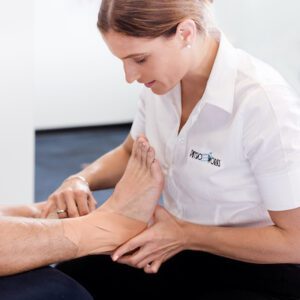

Sports Physiotherapy is the specialised branch of physiotherapy which deals with injuries and issues related to spokespeople. Practitioners with additional formal training within Australia are Sports & Exercise Physiotherapists.
What is Sports Physiotherapy?
Sports injuries do differ from common everyday injuries. Athletes usually require high-level performance and demands placed upon their bodies, which stresses their muscles, joints and bones to the limit. Sports physiotherapists help athletes recover from sporting injuries and provide education and resources to prevent problems. Each sports physiotherapist usually has sport-specific knowledge that addresses acute, chronic and overuse injuries. Their services are generally available to sportsmen and women of all ages engaged in sports at any level of competition.
Members of Sports Physiotherapy Australia (SPA) have experience and knowledge of the latest evidence-based practice, professional assessment and diagnosis of sports injuries, and effective hands-on management techniques and exercise protocols to assist recovery and prevent future damage. SPA members have access to the most recent advances in sports physiotherapy. You'll be pleased to know that most PhysioWorks physiotherapists and massage therapists are particularly interested in sports injury management.
General Sports Physio FAQs
- Sports Physiotherapy
- Acute Sports Injury Clinics
- Sports Physiotherapy Treatment
- Youth Sports Injuries
Injury Management
- Sports Injury? What to do? When?
- When Can You Back to Sport?
- Sports-Related Injuries
- Knee Sports Injuries
- Sports Health Conditions
Sports Massage
Sports Insurance
Related Articles
- Sports Injury Management: This article provides a comprehensive look at how sports injuries are managed, including prevention strategies and treatment options.
- Soft Tissue Injury Healing: Readers can learn about the healing process for soft tissue injuries, including practical advice for each phase of recovery.
- Prehabilitation: Key to Injury-Free Sports Performance: Offers insights into how athletes can prevent injuries before they occur, focusing on strengthening and conditioning practices.
- Athletics Injuries - Comprehensive Physio Guide: A detailed guide on common injuries in athletics and how to treat and prevent them, making it a valuable resource for athletes of all levels.
- Acute Sports Injury Clinic: Highlights the services offered by sports injury clinics, including fast-track assessments and treatments for acute sports injuries.
- Effective Management of Kids Sports Injuries: This guide focuses on the unique aspects of managing sports injuries in children, offering parents and coaches valuable advice on care and prevention.
More Information
Rochedale - Call 38410277
Book Online: RochedaleSalisbury - Call 32751044
Book Online: SalisburySandgate - Call 32691122
Book Online: SandgateCommon Muscle Injuries
A Physiotherapist's Guide
Introduction
Muscle injuries, presenting as muscle strain, pain or myalgia, are prevalent health issues affecting a wide range of individuals. This detailed guide, from a physiotherapist's perspective, delves into various muscle injuries, elaborating on their management, prevention, and the importance of professional advice. Explore the linked articles for an in-depth understanding of muscle injuries and their effective treatment.
Neck & Back Muscle Injuries: Causes and Solutions
- Back Muscle Pain: This pain often results from prolonged poor posture or physical overuse. Key to relief is engaging in exercises that strengthen the core muscles and improve posture, thereby alleviating the strain on the back.
- Neck Sprain: Caused by sudden, awkward movements, a neck sprain can benefit from a combination of gentle stretches and targeted strengthening exercises to restore flexibility and strength.
- Text Neck: A modern ailment resulting from extended mobile device use, text neck can lead to chronic pain. Regular breaks, posture-awareness, and neck-strengthening exercises are essential for prevention.
- Whiplash: Commonly occurring in car accidents, whiplash requires a careful approach including neck stabilisation exercises and controlled movement to encourage healing and prevent further injury.
Lower Limb Muscle Injuries: Understanding and Treating
- Hamstring Strain: Particularly common among athletes, particularly runners, this strain demands rest initially, followed by a carefully structured rehabilitation program focusing on gradual strength building and flexibility.
- Thigh Strain: Often seen in sports involving sprinting and jumping, thigh strains need a combination of rest, ice, compression, and elevation (RICE) in the initial stages, followed by carefully planned strengthening exercises.
- Groin Strain: This injury requires a nuanced approach, including sufficient rest and targeted exercises, to ensure a safe and effective recovery.
- Calf Muscle Tear: Key to recovery is a balance of rest, gentle stretching exercises, and a gradual return to full activity, ensuring the muscle heals correctly and strength is regained.
Upper Limb Muscle Injuries: Prevention and Care
- Golfer's Elbow and Tennis Elbow: Both these conditions involve inflammation of the tendons and require a rest period, followed by ice therapy and specific exercises tailored to strengthen the affected muscles.
- Corked Thigh: Resulting from direct impacts, these injuries demand immediate application of ice and a controlled, gradual exercise regime for recovery.
- DOMS, Fatigue-Related Cramps & Myalgia: Adequate rest, good hydration, and gentle stretching are crucial in alleviating these conditions.
- RSI: Regular stretching, ergonomic workplace adjustments, and taking breaks are key preventive measures for repetitive strain injury.
Systemic Causes of Muscle Pain: A Holistic View
- Fibromyalgia: This complex condition demands a holistic treatment approach, including exercise routines, stress management techniques, and sometimes medication.
- Rheumatoid Arthritis: Effective management combines medication, gentle exercise, and regular physiotherapy sessions.
Prevention and Management Strategies
- Regular Exercise: Regular physical activity helps maintain muscle strength and flexibility, reducing the risk of muscle injuries.
- Posture Improvement: Good posture, both in motion and at rest, is crucial for preventing muscle strain.
- Proper Warm-up and Cool-down: Adequate warm-up before and cool-down after physical activity is vital in preventing muscle strains and injuries.
- Ergonomic Adjustments: Making ergonomic adjustments at work and during daily activities can significantly reduce the risk of repetitive strain injuries and other muscle-related issues.
- Maintaining a Healthy Weight: Keeping a healthy weight reduces the strain on muscles, particularly in weight-bearing joints.
What to Do? Seeking Professional Advice
Consult a physiotherapist or doctor for personalised advice and treatment plans. Remember, early intervention can significantly improve recovery outcomes and prevent chronic problems.
Conclusion
While muscle injuries are common, effective management and prevention are achievable with the right approach and knowledge. Understanding the causes, symptoms, and various treatments available empowers individuals to take proactive steps in their recovery and prevention. For the most tailored and effective treatment, always seek the guidance of a professional physiotherapist.
Rochedale - Call 38410277
Book Online: RochedaleSalisbury - Call 32751044
Book Online: SalisburySandgate - Call 32691122
Book Online: SandgateCommon Ligament Injuries
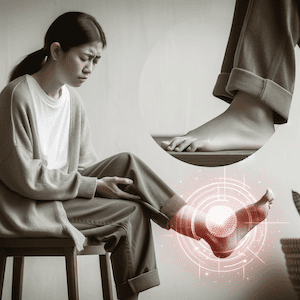

Ligament Injury
Ligament injuries frequently occur in various body parts, leading to pain and restricted movement. The most common sites include the knee, ankle, shoulder, wrist, hand, and spine.
Notably, knee injuries like ACL, PCL, MCL, and LCL sprains are prevalent.
Shoulder injuries often involve the AC joint, while wrist and hand issues can include thumb and finger sprains.
Spinal ligament injuries, such as back and neck sprains, and whiplash, are also significant. Understanding these injuries helps in prevention, early detection, and effective treatment.
- Ankle Ligament Injuries
- Knee Ligament Injuries
- Shoulder Ligament Injuries
- Wrist & Hand Ligament Injuries
- Spinal Ligament Injuries
Ankle Ligament Injuries
Ankle injuries often result from sudden twists or rolls, leading to sprains and strains.
Knee Ligament Injuries
Knee ligament injuries are among the most common and can severely impact mobility and quality of life.
- ACL Injury
- PCL Injury
- MCL Sprain
- LCL Sprain
- Posterolateral Corner Injury
- Patella Dislocation
- Superior Tibiofibular Joint Sprain
Shoulder Ligament Injuries
Shoulder ligament injuries can be debilitating, affecting a range of movements.
Wrist & Hand Ligament Injuries
Injuries in the wrist and hand are common, especially in sports and physical activities.
Spinal Ligament Injuries
Spinal ligament injuries can result from various causes, including posture issues and physical impacts.
Related Articles
- Ligament Tear - Common Ligament Injuries: Offers a comprehensive overview of ligament injuries across different body parts, including prevention, early detection, and effective treatment strategies.
- Knee Ligament Injury - A Physiotherapist's Guide & Tips: Provides insights into diagnosing knee pain, covering ligament issues among other concerns, and suggests pain relief methods through exercise and treatment.
- Common Ankle Ligament Injuries: A Physiotherapist's Guide: Discusses the treatment and prevention strategies for ankle ligament injuries, emphasising the importance of early intervention.
- Sprained Ankle Treatment & Recovery Guide: Offers detailed guidance on the recovery timelines for sprained ankles, highlighting the importance of restoring strength, motion, and function for a full recovery.
- Ankle Strapping: Complete Guide To Injury Prevention: Focuses on preventing ankle injuries through effective strapping techniques and discusses conditions like ankle arthritis and biomechanical issues.
- Sub-Acute Soft Tissue Injury: Explores the treatment and recovery process for various ligament injuries, including those affecting the knee, shoulder, wrist, hand, and spine.
- Sprained Thumb Treatment And Recovery Tips: Delivers practical tips for treating and recovering from a sprained thumb, along with general management strategies for wrist and hand pain.











